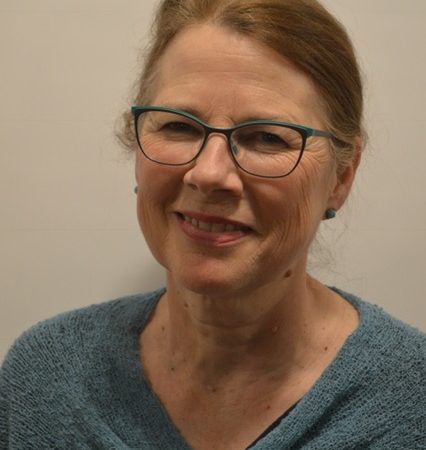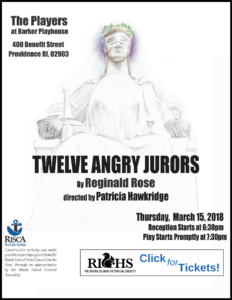

Before I moved here, the only time I ever came to Providence was as a young girl, when my family would drive three hours from upstate New York to spend Thanksgivings with my paternal grandparents at 110 Benevolent Street (now the administrative headquarters of the Rhode Island Historical Society). I remember thinking what a nice place Rhode Island must be if they have cities called Providence and streets named Benevolent. I also remember raucous discussions in the living room, usually about politics, sailing way over my head, followed by a large lunch which went directly into my head, bowls and plates of delicious foods brought out by a kind lady called Helen from a mysterious kitchen. I remember hearing grandma’s hearty laugh from anywhere in the house. And the house! I loved playing upstairs and exploring the little hall that curved and led to another part of the house, another world. It was magical. I often conflated my memories with the first book in the Mary Poppins series, which I read numerous times. The Aldrich House and the Banks House were one and the same. I never got to go into the kitchen until after my grandparents had died, and my sister and I were invited to pick out some kitchen things we’d like. The morning we drove down from Boston, I entered this kitchen as if a postulant, finally permitted to enter the holy shrine. I chose a set of old-fashioned kitchen utensils – which I still use every day.
I’ve been involved with The Players at Barker Playhouse since spring of 2014, shortly after moving to Providence with my husband. Two people I knew said I’d enjoy the Players, and they were right. You know when you walk in the door and you feel, “Ah, I’m home”? That’s how it felt. The first play I saw was Love Letters, quickly pulled together because three-quarters of the cast was sick at home. Carole Battaglia and Jack O’Keefe, both members of Players, were so good, I dissolved into a crying mess and was unable/too embarrassed to go downstairs to the Green Room to thank them.
In the last several years, I’ve watched The Players at the Barker transform before my eyes as a community theater, in the truest sense of the word “community.” We are now ADA compliant on the theater level, and thanks to two more grants secured earlier this year, we will be fully compliant by fall. Players membership has soared as we’ve opened our doors to community organizations and as we have increased our outreach efforts. For instance, we can’t wait to host the RIHS and supporters like you on Thursday for a special presentation of Twelve Angry Jurors.(Tickets are available here.)
I’ve had the fortune to work on a number of productions both back- and onstage at the Barker. The Barker now offers its 109th season and Twelve Angry Jurors is our fourth production, a courtroom drama in which I play the part of Juror #11, a fairly recent immigrant. Yes, I speak in an accent, so I’ll let you guess where I’m from! 🙂 This play is almost the same as Twelve Angry Men, written by Reginald Rose, that started as a television play in 1954 and was made into a movie in 1957 with a star cast, including Henry Fonda, Lee J. Cobb, and E. G. Marshall. But rather than being an all-male cast set in NYC, the cast of our play is men and women, the courtroom drama set in Providence.
It’s fulfilling to be part of making a story come alive, word by word, gesture by gesture. Our director, Patricia Hawkridge, directs us with a keen ear for emotional truth. The play itself is unusual as all the Jurors are on stage for the entire play. As Patricia told us recently, “You guys are all on the same roller coaster. Once the door closes, you can’t get off until the very end. You can’t go off backstage and quickly review your next lines. This is it. So you must work together as a team.” (Don’t worry, there’s an intermission!) From the beginning we’ve had to trust things she has asked of us which have helped us to get to know one another, work together, listen to one another, and ultimately trust one another.
Why this play? Why come see a courtroom drama that depicts a scene that occurs almost daily in America? Because at a time when the treatment of minorities and immigrants has shaken the foundation of our society and the meaning of what America stands for in our hearts and across the world, the play affirms one of the most essential things about our justice system that makes America truly great. It also shows what bigotry looks like up close and at the same time what values shine brightly in the human heart that are stronger than bigotry. It gives you a flesh and blood look at what it means to stand up for what you believe, even when others doubt everything you say. It even lets you briefly see into the complex, and deeply human, heart of a bully. The play invites you to understand human behavior better. This play is timely at any decade, but I’m finding particular solace now in the words I speak and those of Juror #8 and Juror #9. I’ll say no more.
I love my role for three reasons. I love accents, and Patricia is a director and dialect coach. She has helped me make it as real as possible. We shall see! Beyond that, there is something I find healing about saying my lines, especially when integrity and caring for others in need seems to have disappeared from the national conversation … at least in national politics.
In addition, my lines, especially in the first act, and my role in general, connect me to my father, Alexander Aldrich, who died last summer. He and my mother stood up for things they believed in. In 1965, while working as Governor Rockefeller’s assistant, he participated in the Selma March. Juror #11 says: “I’ve always thought that a man was entitled to have unpopular opinions in this country. This is why I came here. I wanted to have the right to disagree.” The freedom to protest is an important mark of a free and democratic society. It moves me knowing my father knew how important this nonviolent protest was and took action.
Just as people are made stronger by being together, our local institutions are stronger when we work together across boundaries and find new ways to connect. These bonds make us more resilient and forge alliances that can take us in directions unimaginable. I’m always impressed with the amazing directions RIHS takes, and I’m excited to invite members, friends, and supporters like you to see our play on March 15, with proceeds from the evening benefiting the organization! I hope you enjoy your experience. I also hope I haven’t rambled too much. Probably an Aldrich trait and I don’t even know it.
Tickets for Twelve Angry Jurors are available here. A wine and bites reception starts at 6:30pm; curtain 7:30pm.
